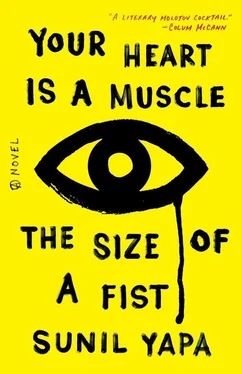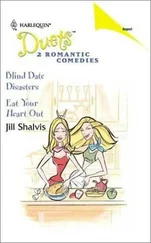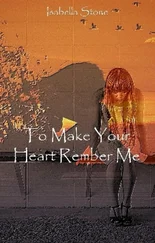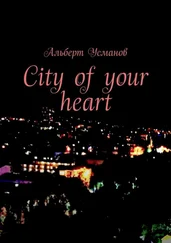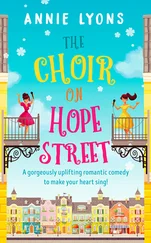They talked about unfair American corn subsidies, explained how cheap American corn destroyed the Mexican agricultural economy, put Mexican farmers out of work, sent them from their farms in the hills to the capital, and when there wasn’t work in the capital, pushed people farther north, across the border.
And they were not saying something he had just discovered, but there was something that mattered, some necessary feeling that needed to be spoken aloud, and maybe it was nothing more than finally here was someone that would understand, and if not understand, here was a man that would listen and consider.
They told him about the IMF, about the World Bank, about Third World debt. Did you know, they said, Nigeria pays more every year on the interest of their debt than they do on education and health? Did you know that because of debt repayments most Third World countries pay more to the First World countries than they receive?
Did you know Monsanto — a huge chemical company — was now marketing itself as an agricultural company, as a company that made food? Did you know they sell farmers seeds that make plants which don’t produce new seeds? Did you know the farmers then have to buy new seeds from Monsanto every year? Telling him about the trade war between the European Union and the U.S. over hormone-treated beef. The Europeans didn’t want to eat it; the U.S. wanted them to eat it and took them to court, to the WTO, which said, yes, the Europeans must import the hormone-treated beef. To stop it was an unfair trade restriction.
The seventy protesters in detention aboard this bus — the seventy John and Jane Does, intent still on practicing civil disobedience, and jamming up the jails — Charles looked at their faces as they talked. They were the faces of that part of the American character that believed not in American destiny, but in the promise of America itself, that same promise with which they had once welcomed dusty hardworking immigrants to their shores.
They were the last of the believers and Dr. Charles Wickramsinghe, seventy years old and the Deputy Minister of Finance and Planning for Sri Lanka, who was born in a British colony where the frocked nuns laughed at his mother and smacked his hand with a ruler, Charles Wickramsinghe, who had owned a dog in his undergraduate days at the Royal College Colombo, a slat-ribbed stray he’d taken in and named on some lighthearted whim Alfred, Lord Tennyson — Charles Wickramsinghe was surprised to feel a widening respect. A respect with more than a pinch of regret. Because how wrong had he been? To think they knew nothing. To dismiss them. All these thoughtful young people striding toward the gates of capitalism — they had taken Gandhi’s hunger strike and arrived at this. And as wrong as they were, as mixed up and incomplete their understanding of the economic issues, he had to admit it was protest and it was outrage and it was completely peaceful — the machetes and machine guns nowhere to be seen.
Two months ago Charles had done an interview with Time magazine. They were doing a feature on debt relief in the developing world. The Jubilee campaign for the Millennium. They had found him. Sri Lanka’s little story. One man and his staff struggling to make gains in the world economy against the backdrop of a twenty-year civil war. Good copy. He had met the reporter in London, a luncheon at the London School of Economics. She wanted to know about the long run of five years. What did he hope to accomplish. What will entry into the WTO do for a small island nation like Sri Lanka. What do the developing countries want, she asked, as if he could speak for 150 of Earth’s 190 nations. As if they wanted anything different than the rest of the world.
Refrigerators, he wanted to say. TVs and SUVs.
But Charles had a deep duty to believe in the system, and a reluctance to speak rudely to reporters. So he spoke of trade liberalization. Opening Sri Lanka’s markets to the products and investment of the West. Of modernizing.
He could not speak of forcing Sri Lankan farmers to compete on the international market with multinational corporations who grew rice on 5,000-acre factory complexes in California and Texas. So instead he said, “What we need is to grow up. To develop. Our fishermen — can you believe it? They still fish from wooden boats. Those without a boat — and there are many, believe me — put a wooden post in the water and they fish standing there as if they were a stork, a sarong-wrapped bird fishing from a pole.”
The reporter chuckled.
“Roads, dams, bridges, great hydroelectric turbines turning in the night. Rice. Yes, we grow rice, but the rice farmers are worse even than the fishermen if that’s possible. Completely backward . Farming as their fathers did. Farming as they have for decades, for centuries .
“Traditional, backward, undeveloped, not of the modern world. It does make for a lovely postcard,” he said, “I’ll give you that. The terraced fields, the bright green of the paddy. A farmer in a colorful sarong, holding a hoe and looking toward the camera as if he were a museum piece, ankle-deep in mud. But do you know what we count as our greatest export?”
She shook her head.
“Servants. Our most successful product so far has been our daughters. We send our daughters to the Middle East where they work as maids.”
He said, “What kind of country are we? Who are we? We are postcards and maids. We are children who must grow up. Join the global economy. Modernize.”
Modernization. What did that even mean? Were there a people in the world who were not modern? Was Sri Lanka not modern? He liked what Gandhi himself had said when asked what he thought about Western civilization.
“I think it would be a good idea.”
And what of Gandhi? What would he say to the reporter? To the media? To these earnest souls gathered here in this makeshift jail? The man who broke British rule by refusing their cloth, their salt. We will make our own and be free, and so they did, and so they were. This man, the moral courage. The damned genius of it. Breaking an empire by refusing their goods. By spinning your own cloth. By marching to the sea to collect your own salt. And who could deny it — they had changed the hierarchy of the world. And yet, what was required now was not a leader like Gandhi, not a man of unbending principle and courage. No, what was needed was a duty-bound minister capable of compromise. Gandhi would not compromise. Going on a hunger strike to protest unfair trade restrictions. Can you imagine? Nowadays they would let him starve. No, what preceded success was not moral courage but moral compromise. That dubious promise of the riches that trade would bring — Charles believed it. He had to believe it. Development. Modernization. The Western way. It might be a path of suffering, but what other path was there?
Gandhi was the man that freed a nation, but it was Nehru — a man of compromise — that built it. It was Gandhi who freed a people; but it was Nehru — a politician — who gave them jobs. Which one should he choose? His doubts weighed against his duty. You cannot have prosperity without a nation of your own. And yet, what good is freedom if you are shackled to your hunger by chains as thick as any ever worn by slaves?
The door swung inward with a hiss and a cop climbed the steps and after looking up and down the aisles pointed to Charles in his black suit jacket and white shirt stained red and said, “You. You’re the delegate?”
A dagger of dread in his chest.
The police officer consulted a piece of paper in his hand.
“You, are you Charles Something Something from Sri Lanka?”
Charles nodded politely. “Yes, I am the Deputy Minister of Finance and Planning for the Democratic Socialist—”
Читать дальше
